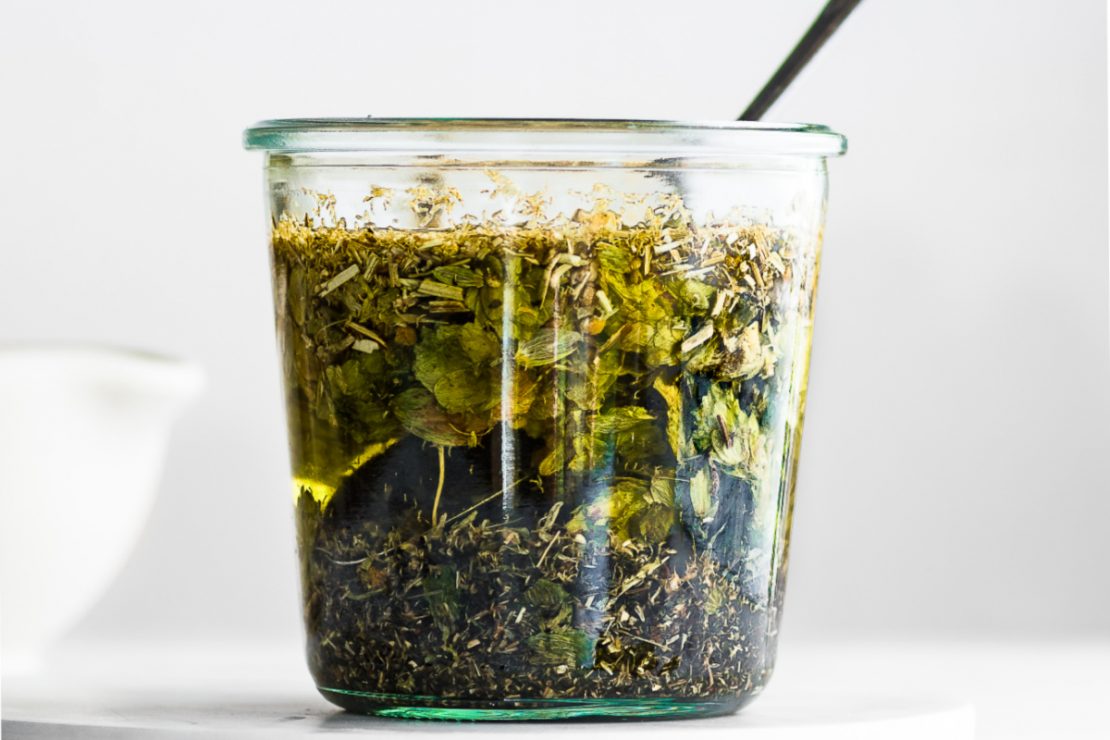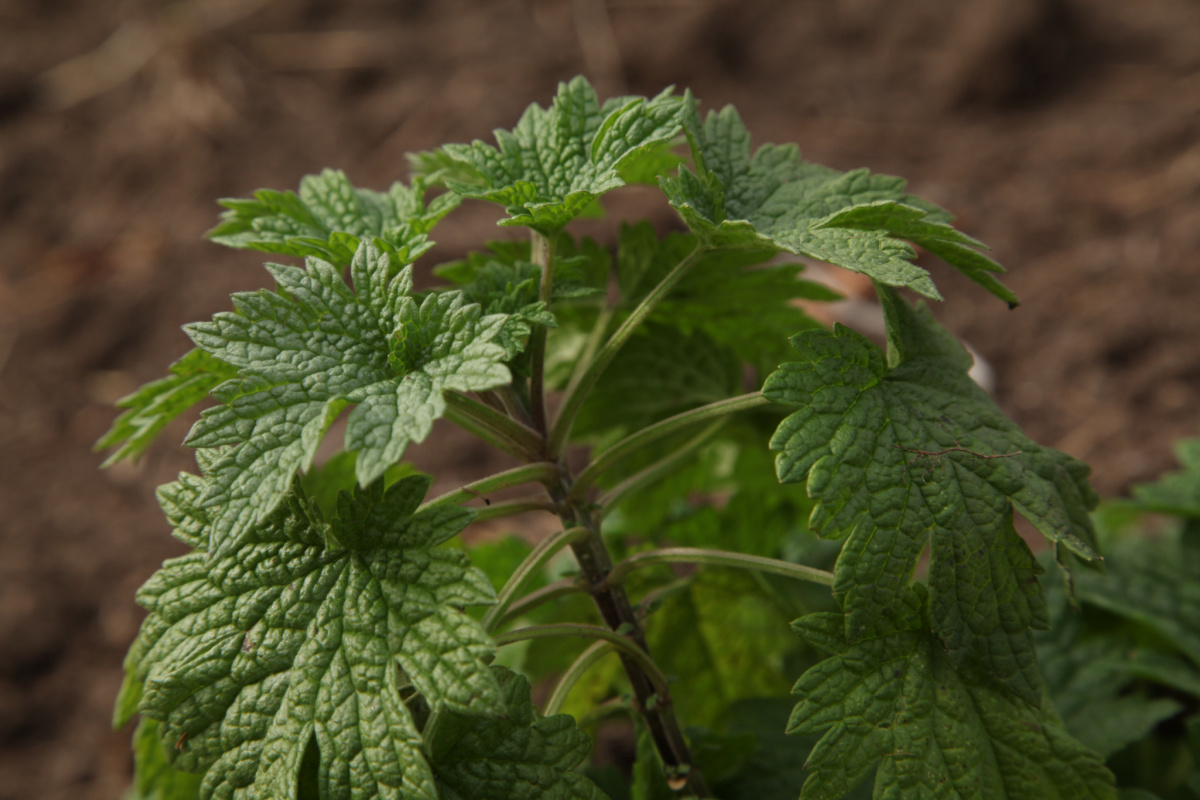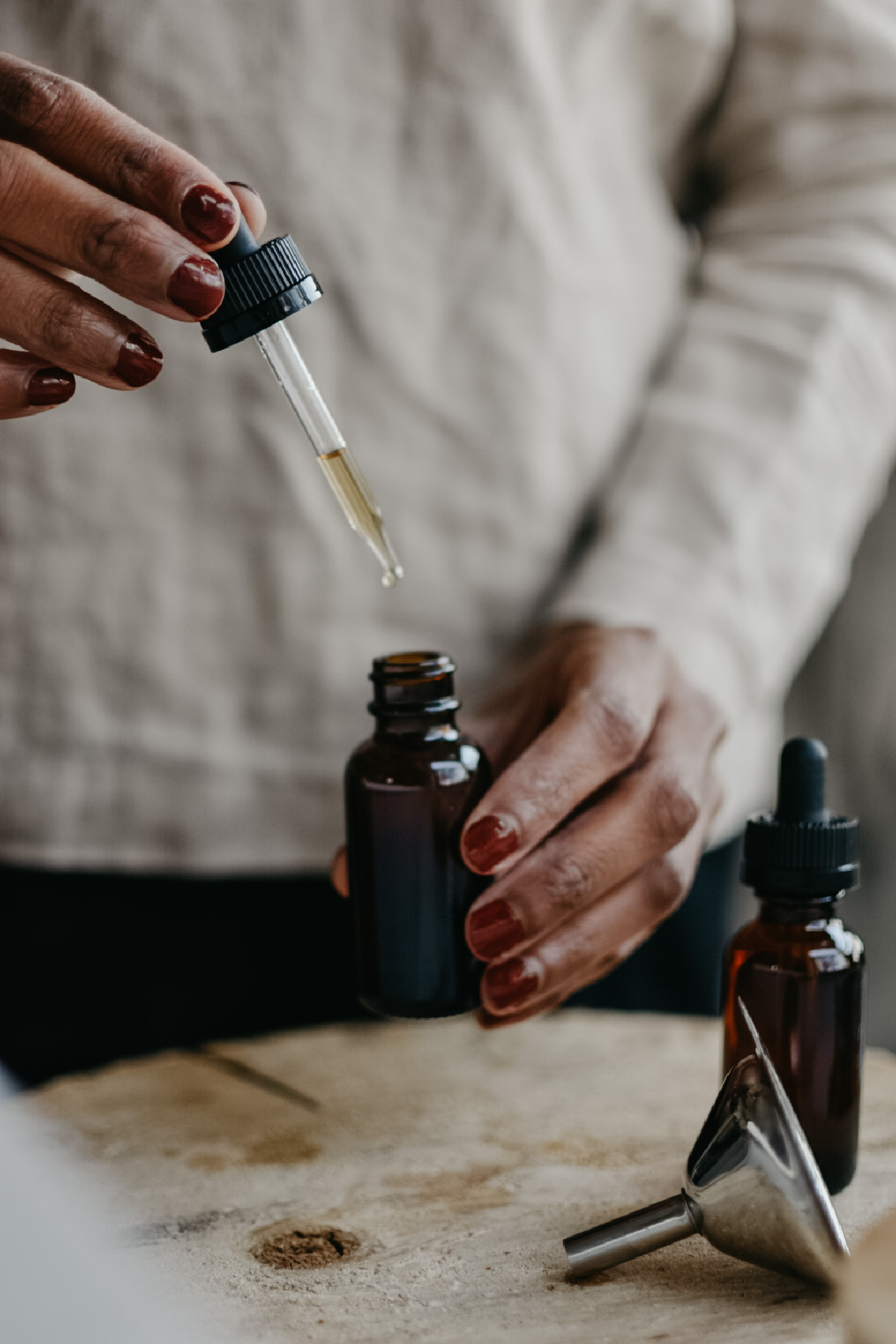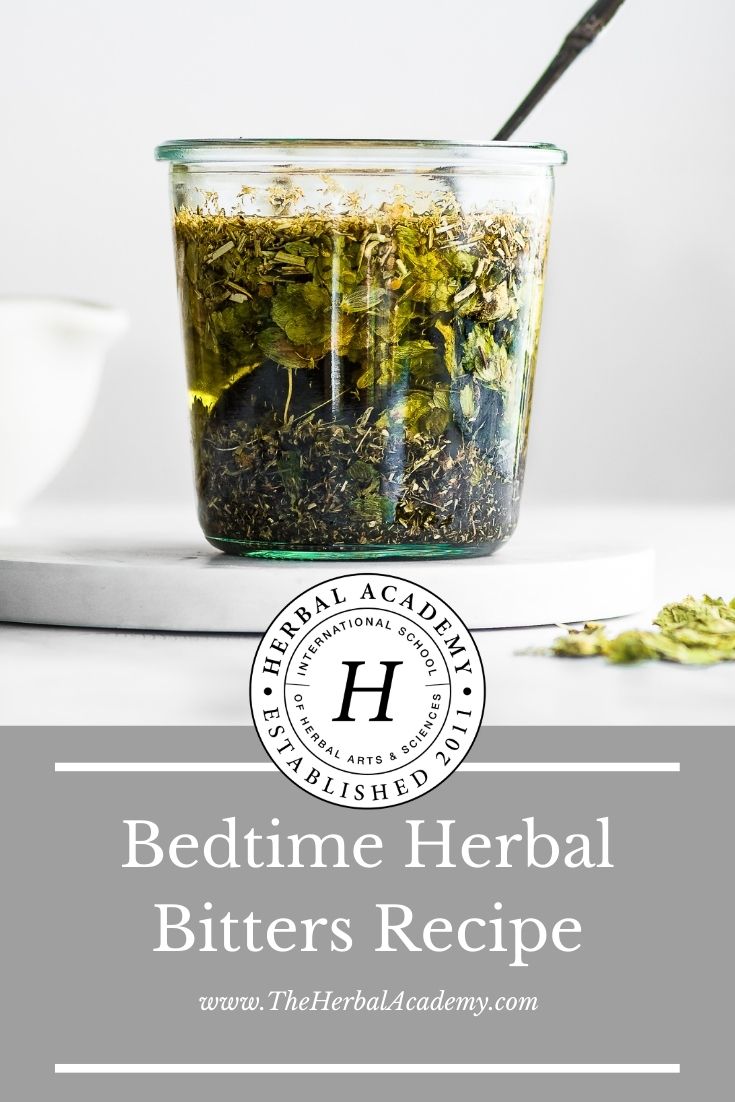
Bedtime Herbal Bitters Recipe
Making your own herbal remedies feels empowering in a cultural climate that seems increasingly disconnected from nature. There’s a beauty to the process, and a sense of simplicity, too. One of the most accessible remedies for new herbalists is a tincture of bitter herbs. It’s easy to make, and it gives you a little freedom to find those herbal bitters (there are many) that resonate with you the most.
Customizing Herbal Bitters
You might know bitters for their ability to support digestion. When you taste something bitter, it sends a signal to your body to kickstart the digestive process. The bitter flavor triggers the release of saliva and signals your stomach, liver, and other digestive organs to ready the body for food.
Yet, beyond their ability to assist digestion through flavor and taste, many bitter herbs also support the body’s other systems and processes. In this recipe for Bedtime Bitters, we chose herbs that also lift the mood and encourage sound sleep.
From the sharp, pointed bitterness of motherwort and hops (Humulus lupulus) to the gentle floral notes of chamomile (Matricaria chamomilla), these herbs work as companions with one another—each complementing the others’ actions. The resulting herbal blend is bitter, to be sure, with soft floral notes and a vibrant, harmonizing zip of mint.

Bitter Herbs that Support Rest
Motherwort (Leonurus cardiaca) tastes wickedly bitter with an earthy edge. Its aggressive bitterness denotes the presence of distinct herbal compounds, such as various glycosides, alkaloids, and tannins. While traditionally used for new mothers, the herb holds broader potential, too. It’s highly anti-inflammatory, supports the heart (Bernatoniene et al., 2014), eases anxious worry, and acts to calm the nerves and promote rest (Wojtyniak et al., 2013).
Hops (Humulus lupulus) is used in beer brewing for the bitter undertone it provides, and herbalists have traditionally used the herb to support relaxation and restful sleep. Rich in various bitter acids, hops flowers have a gentle sedative quality, helping to induce sleep (Schiller et al., 2006). Keep in mind that the plant has estrogenic activity, so avoid the herb if you’re pregnant.
Chamomile (Matricaria chamomilla) is an aromatic, bitter herb with a sweet, powdery scent. Like other members of the daisy family (Asteraceae), its flower boasts a sunny yellow center flanked by white petals. The herb is well-known for the gentle way it lifts the spirit and eases worry. In addition to these relaxing properties, chamomile shows promise in calming anxiety (Amsterdam et al., 2020).
Spearmint (Mentha spicata) has a lively spirit and bright flavor, and it brings a harmonizing energy to the blend of bitter herbs in this remedy. Like other members of the mint family (Lamiaceae), spearmint has a reputation for supporting relaxation. It also eases stomach upset (Gladstar, 2008), making it a natural partner for digestion-supportive bitter herbs.

1/4 cup dried motherwort (Leonurus cardiaca) leaves To Use: These herbal bitters will keep for about two years in a dark cupboard away from direct light and heat. Take about ½ teaspoon at bedtime.
This recipe comes from Vibrant Botanicals, a cookbook all about simple, nourishing foods and easy herbal remedies you can make at home. It includes energy-boosting recipes for the morning, recipes to support the immune system, enhance memory and cognition, or just help you get a good night’s sleep like these Bedtime Bitters.
Reprinted from Vibrant Botanicals. Copyright © 2021 by Jennifer McGruther. Photographs copyright © 2021 by Jennifer McGruther. Published by Ten Speed Press, an imprint of Random House, a division of Penguin Random House
For more bitters recipes, see:
Dark and Stormy Mushroom Bitters Recipe REFERENCES
Amsterdam, J. D., Li, Q. S., Xie, S. X., & Mao, J. J. (2020). Putative antidepressant effect of chamomile (Matricaria chamomilla L.) oral extract in subjects with comorbid generalized anxiety disorder and depression. Journal of Alternative and Complementary Medicine), 26(9), 813–819. https://doi.org/10.1089/acm.2019.0252
Bernatoniene, J., Kopustinskiene, D. M., Jakstas, V., Majiene, D., Baniene, R., Kuršvietiene, L., … Trumbeckaite, S. (2014). The effect of Leonurus cardiaca herb extract and some of its flavonoids on mitochondrial oxidative phosphorylation in the heart. Planta Medica, 80(7), 525–532. https://doi.org/10.1055/s-0034-1368426
Gladstar, R. (2008) Rosemary Gladstar’s herbal recipes for vibrant health. North Adams, MA: Storey Publishing.
Schiller, H., Forster, A., Vonhoff, C., Hegger, M., Biller, A., & Winterhoff, H. (2006). Sedating effecs of Humulus lupulus L. extracts. Phytomedicine: International Journal of Phytotherapy and Phytopharmacology, 13(8), 535–541. https://doi.org/10.1016/j.phymed.2006.05.010
Wojtyniak, K., Szymański, M., Matławska, I. (2013). Leonurus cardiaca L. (motherwort): a review of its phytochemistry and pharmacology. Phytotherapy Research, 27(8):1115-20. https://doi.org/10.1002/ptr.4850
Bedtime Bitters Recipe
Tinctures are an excellent way to use bitter herbs whose wickedly sharp flavor can make them difficult to enjoy otherwise. These two herbs, motherwort and hops, work well together. Motherwort eases worries and lifts the heart while hops flowers promote restful sleep. The gentle spirit of chamomile supports these actions, while spearmint works to harmonize the blend while also contributing its own relaxing qualities. Yield: approximately 1 cup.
2 tablespoons dried hops (Humulus lupulus) flowers
2 tablespoons chamomile (Matricaria chamomilla) flowers
2 tablespoons dried spearmint (Mentha spicata) leaves
1 cup 100-proof distilled alcohol, such as vodka
Vibrant Botanicals
A Summer Bitters Recipe with Dandelion, Gentian, and Licorice Root









